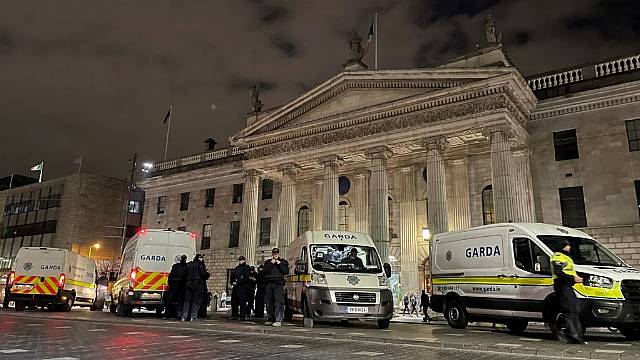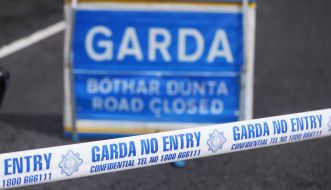Suggestions that some communities would resort to vigilantism to deal with anti-social behaviour are “not helpful”, the general secretary of the Association of Garda Sergeants and Inspectors (AGSI) has said.
Communities need to work with gardaí to ensure peace and order, Antoinette Cunningham told RTÉ radio’s Today with Claire Byrne.
“Communities and the gardaí need to work collaboratively and collectively together for the greater good of peace and law and order in our city and in our country,” she said.
Her comments come after Dublin councillors told Garda Commisssioner Drew Harris that communities may form vigilante groups to protect themselves from violence unless the Garda cracks down on “thugs” and far-right extremists.
There had been pressure on the Garda Commissioner and gardaí over safety issues in the capital before disorder broke out last week, resulting in cars, buses and trams being burned and shops being damaged and looted.
In response to news that Minister for Justice Helen McEntee has asked the Policing Authority to review how frontline gardaí deal with serious public order events, Ms Cunningham said she feared this was “another crisis, another review”.
The key issue was what would change for the people she represented “tomorrow or the next day or the next day”.
“We have been raising significant concerns with the Minister for some time. We haven't seen a really robust response from her or from Government. I'm not sure we can welcome that review and not be a little bit cynical about this,” Ms Cunningham said.
Ms Cunningham pointed out that it has been seven years since the AGSI had first mentioned body cams, and five years since the issue of recruitment and retention rates had been raised.
“We certainly have highlighted for many, many years the unfettered powers of GSOC [the Garda Síochána Ombudsum Commission] that have led to prolonged investigations, that have moved the people that I represent into a state of fear to use proportionate and legitimate force, because GSOC will tie them up in investigations that affect their family and professional life for years and years and years, and nobody will make GSOC accountable for that.
“Gardaí now have to second guess themselves when it comes to policing in a situation where they know themselves they may have to use their force, their baton, their pepper spray, and if they do, they will be writing on it for at least three months afterwards.”
The AGSI supported accountability, she said, but added that GSOC should not have “unfettered power” and for their investigations to go on for “three, and five and seven years” leaving people in a state of limbo in their personal and professional lives.
“We've asked the Minister on numerous occasions to appoint a judge, a retired judge or a senior counsel, to move when GSOC files are longer than a year or 18 months, that they would go over there to be reviewed to see, is there a legitimate reason why this investigation is taking so long?
“Should it be prioritised? Is there a fairness attached to this for the member? And if there isn't, then that person should have the power to deal with that file appropriately.”
Asked about the use of facial recognition technology, Ms Cunningham said the AGSI supported the Garda Commissioner’s view in its use for operational policing.
“Of course, we recognise that there are issues, and the civil liberties groups and others have and politicians have raised those legitimate concerns very well, but there's nothing there, in our view, that can't be addressed in sound robust legislation on its use.”
Concerns around equality had been very well aired and could be addressed to the satisfaction of everybody, she said.
“But not forgetting, its purpose will be to aid policing in this country.
“We certainly support everything that can improve operational policing and operational requirements. We represent a very tired and weary workforce that currently exists because the Government have absolutely failed to address many legitimate issues that would make their working life so much better.”
Ms Cunningham pointed out that gardaí who come to Dublin to assist in policing events receive an allowance of €107 to stay in Dublin for a 24-hour period.
“Every other civil servant in this country gets €167,” she noted.
“We've raised this with the Minister three years ago that our people cannot stay in Dublin when they come up to do a 12-hour shift. They either have to get into a car and drive down the country, or go somewhere else because they can't get a place to sleep for €107.
“They're sleeping in cars, or moving back down the country to a place where they've already done a 12-hour shift. We've raised that with the minister at least, I'd say, a hundred times in the last three years, and we still have no response, and that's the working conditions that we are under.”







